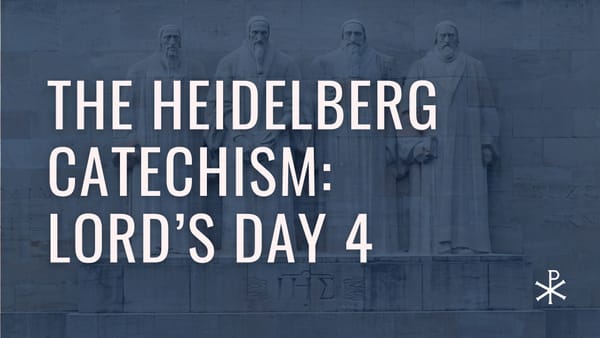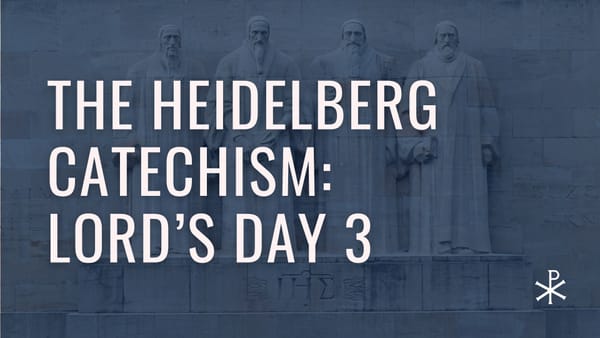Whose Performance Matters Most?
Christianity is about God doing for us what we could never do for ourselves—and that changes everything.

If you were to ask many Americans today, "What is Christianity about?" many might answer, “Getting right with God.” They often mean making moral corrections—thinking, saying, and doing the right things. To many, Christianity is primarily about morality and behavior.
Now, it's important to recognize that Christianity does involve morality and behavior. Jesus is King of kings and Lord of lords, and He calls us to obedience. But there's a big difference between acknowledging the moral dimension of Christianity and making morality the center of our faith. So, is Christianity primarily about our behavior and moral transformation? Many people, both inside and outside the church, might say yes. But is that really the heart of the gospel?
Take a moment to consider how Christians often frame their testimonies. Many begin by sharing how sinful they were, then how they turned to Jesus, sought forgiveness, and received a second chance to “get things in order.” They emphasize that now, with God’s help, they’re living a better life. But listen closely. What are they testifying to? While they mention Jesus, they often focus more on what they’ve done for God—their behavior, their improvement. Subtly, their testimony shifts from God’s work for them to their work for God. It’s as if the message is that because they’ve started doing the right things, they’ve gotten right with God.
This shift in focus might seem minor, but it changes everything. It turns the gospel—God’s radical message of grace—into something far less powerful. It shifts the focus from Christ’s finished work on the cross to our imperfect attempts at obedience. Instead of proclaiming what God has done for us, it begins to sound like what we’ve done for God.
Let’s examine two errors in this way of thinking. First, framing Christianity as merely a second chance suggests that Christ’s work on the cross is incomplete. It implies that Jesus’ death made our salvation possible, but we still need to earn it. Yet, Scripture teaches the opposite. Jesus fully accomplished our redemption (John 19:30). He didn’t just open the door to salvation; He walked through it for us.
Second, when we place the weight of our justification on our moral performance, we lower the standard of God’s holiness. We start to think God’s approval depends on our efforts. But God’s law demands perfection (James 2:10). No amount of personal improvement can meet that standard. Thankfully, the good news of the gospel is that our standing before God doesn’t rest on our performance but on Christ’s (Ephesians 2:8-9).
So what are the consequences of this misunderstanding? It places our confidence in our progress and performance, leading us to live in constant tension. When we feel we’re doing well—attending church, giving, serving—we might experience pride, thinking we've earned God’s favor. But when we fail—and we will—we might sink into despair, doubting whether God still accepts us. We might even question our salvation altogether.
This leaves us with several options: we can try harder, perform penance, pretend we’re better than we are, or, like many I’ve seen as a pastor, simply give up. These responses are the fruit of believing that Christianity is about our performance for God rather than His grace toward us.
But the gospel frees us from this cycle. Our justification—being made right with God—is based on what Jesus has done, not on our obedience (Romans 8:38-39). While our growth in grace and obedience is important, it is the fruit of God’s love, not the means to it (Galatians 5:22-24). Our obedience glorifies God, blesses our neighbors, and brings us joy and peace (Philippians 2:12-13), but it is never the basis of our salvation. We are neither legalists, trying to earn God’s favor through the law, nor antinomians, dismissing the importance of obedience. We obey because we are loved, not to be loved (1 John 4:19).
So, what if Christianity isn’t about our moral transformation, but about Christ’s substitution for us? What if, instead of trying to be what we can never be, we rest in what Christ has already done for us? That’s the heart of the gospel. And that changes everything.




